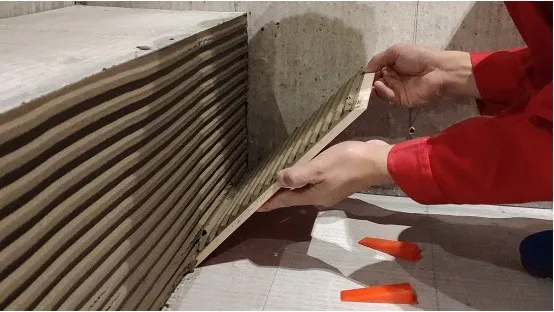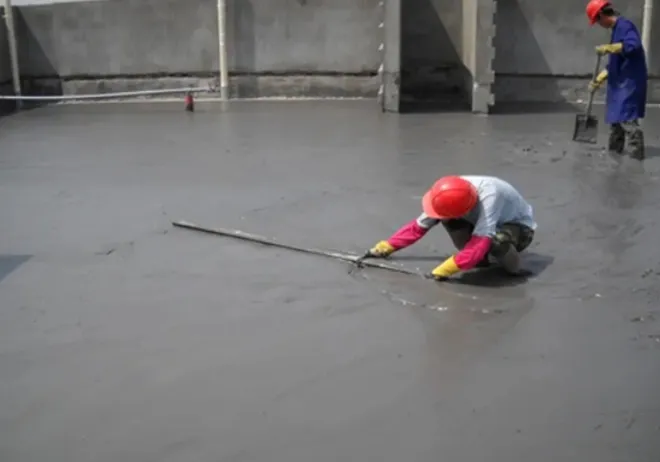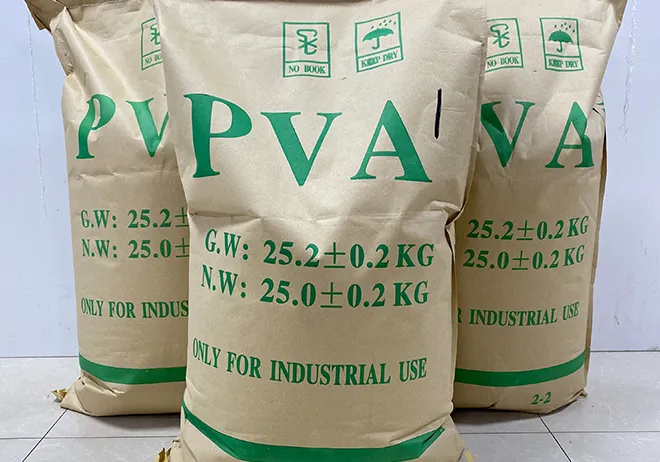
Polyvinyl Alcohol Powder in the Construction Industry
Polyvinyl alcohol powder has become an essential component in modern construction due to its versatility and ability to enhance the performance of various building materials. One of its most significant applications is in tile adhesives, where polyvinyl alcohol (PVA) provides improved bonding strength, making it an ideal additive for both residential and commercial projects.

The Role of Polyvinyl Alcohol Powder in Tile Adhesives
In tiling applications, PVA for tiling serves as a crucial additive that enhances the bonding strength between the tiles and the substrate. When used in tile adhesives, polyvinyl alcohol powder creates a stronger and more flexible bond, allowing for better adhesion, especially in areas that experience temperature fluctuations or moisture exposure. This improved bond reduces the likelihood of tiles cracking or coming loose over time, ensuring a longer-lasting and more durable surface.
Additionally, general purpose PVA can be used across different types of tile adhesives, making it a versatile solution for various construction projects. Whether you are working with ceramic, porcelain, or natural stone tiles, PVA for tiling ensures a secure and reliable bond, even in challenging environments.
Polyvinyl Alcohol as an Additive for Stronger Concrete
Apart from its application in tile adhesives, polyvinyl alcohol powder also plays a significant role in enhancing the properties of concrete. By adding polypropylene fibers for concrete along with PVA additives, construction professionals can significantly improve the durability and crack resistance of concrete. Polyvinyl alcohol helps create a more homogeneous mixture, reducing the formation of microcracks that can lead to structural weaknesses over time.
The inclusion of polypropylene fibers for concrete further strengthens the concrete by increasing its tensile strength and reducing shrinkage during the curing process. Together, PVA additive and polypropylene fibers offer a powerful combination that enhances the overall performance of concrete, making it more resilient to wear and tear in high-stress environments such as foundations, walls, and floors.
Enhancing Durability with PVA Additives
The addition of PVA additive in construction materials offers numerous benefits beyond just tile adhesives and concrete. Polyvinyl alcohol powder can be used in a variety of applications, including mortars, plasters, and grouts, to improve their workability, adhesion, and water retention properties. By incorporating general purpose PVA into these materials, builders can ensure a smoother application and longer working times, which are critical for achieving professional results.
Moreover, PVA additive is known for its ability to enhance the flexibility of materials, reducing the risk of cracking in both wet and dry conditions. This property is especially useful in areas with fluctuating temperatures or where materials are exposed to moisture, as PVA additives help maintain the structural integrity of the construction over time.
Safety Considerations for Using Polyvinyl Alcohol
While polyvinyl alcohol powder offers many benefits in construction, it is important to follow proper safety guidelines when handling this material. According to the polyvinyl alcohol MSDS (Material Safety Data Sheet), PVA is generally safe for use in construction applications when handled properly. However, as with any chemical substance, there are certain precautions that should be taken.
When working with polyvinyl alcohol powder, it is advisable to wear protective gear, such as gloves and masks, to prevent inhalation of dust or skin irritation. Additionally, ensure proper ventilation in the work area to avoid the accumulation of airborne particles. By following the recommendations outlined in the polyvinyl alcohol MSDS, construction professionals can safely utilize this additive to its full potential.
The Future of PVA in the Construction Industry
As the construction industry continues to evolve, the use of innovative materials like polyvinyl alcohol powder will only become more widespread. With its ability to enhance bonding strength, improve flexibility, and increase durability, PVA is set to remain a key additive in tile adhesives, concrete mixtures, and other construction materials. Furthermore, as sustainability becomes a growing concern, the biodegradable properties of PVA additive may offer an eco-friendly alternative to traditional chemical additives, making it a valuable component in the future of green construction practices.
The use of polyvinyl alcohol powder in construction offers numerous advantages, from improving the adhesion of tile adhesives to enhancing the durability of concrete and other building materials. By incorporating PVA for tiling and polypropylene fibers for concrete, builders can create stronger, more resilient structures that withstand the test of time. With its versatility and proven performance, polyvinyl alcohol powder is poised to play an increasingly important role in the future of construction.
-
Hydroxypropyl Starch as a Sustainable Construction AdditiveNewsNov.24,2025
-
The Gelation Properties of CMCNewsNov.21,2025
-
Redispersible Latex Powder and Water Retention CapacityNewsNov.21,2025
-
Dosage Control for Polycarboxylate Water ReducerNewsNov.21,2025
-
Film-Forming Properties of Polyvinyl AlcoholNewsNov.21,2025
-
The Function of Gypsum Additives in MortarNewsNov.21,2025























